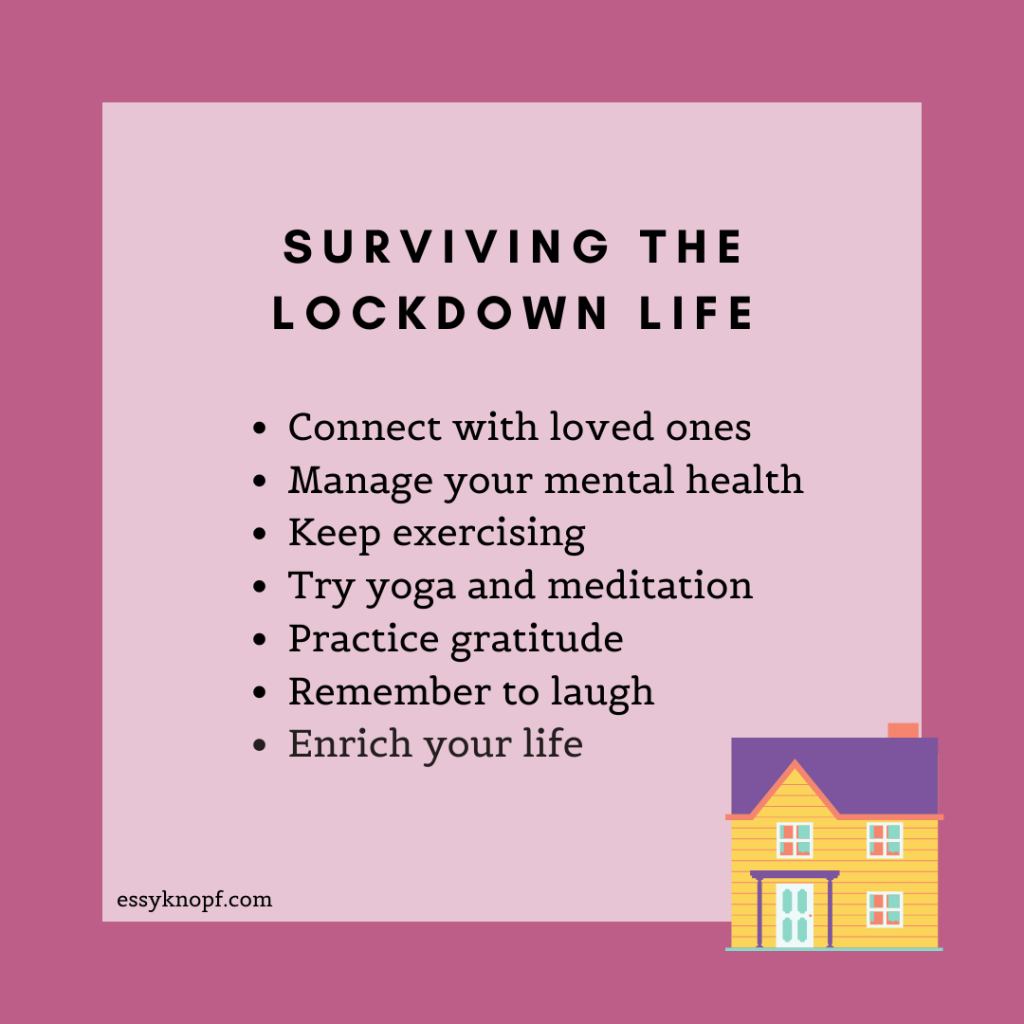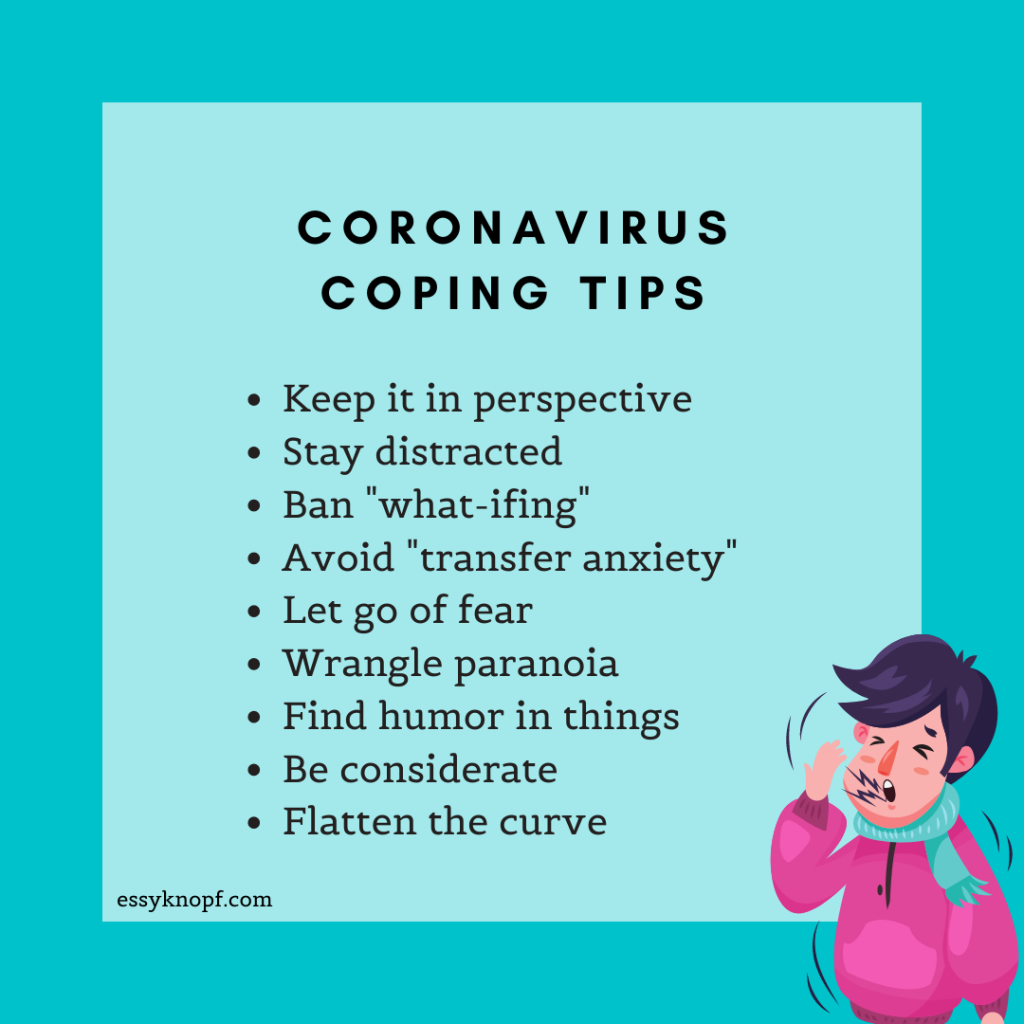How to keep mentally well during the coronavirus pandemic
The coronavirus pandemic reached new and chilling heights shortly after I arrived in Australia to visit family.
Friends and the media had told me to expect the worst – sprawling supermarket queues, panic buying, fights over toilet paper – but upon my return to Los Angeles, I found calm and order.
Lockdown had brought a range of unexpected benefits, the reduced traffic being one of them. There were the smog-free skies also, and the appearance of new public works projects.
But after a few days of self-imposed quarantine, my initially positive attitude began to fade.
I normally work from home and tend to mix up my daily routine with a range of physical and social activities. Twice a week I’ll go for a run down at the local park, explore a new hiking trail, or catch up with a friend.
Social distancing however now made these impractical, if not impossible.
As my motivation ebbed, I began sleeping in and stopped exercising. And gradually my mood took a turn for the worse.
Table of contents
Connect with loved ones
With many public areas now closed and regions under coronavirus pandemic lockdown, a collective retreat indoors has resulted in social isolation seemingly overnight.
But the coronavirus crisis is not one that must be endured in solitude. For this reason, we should reach out to family members and friends. Chances are they’ll be equally grateful for our conversation and company.
If texting, calling, instant messaging, social media, or online multiplayer gaming aren’t doing it for you, consider throwing a virtual party over Zoom or Google Chat.
You can even screen-share a party game collection like Jack Box.
Manage your mental health
Modern hyperconnectivity right now cuts both ways. It means we can communicate with a tap of the thumb, but it also means we are bombarded around the clock with the latest coronavirus-related development.
The unprecedented nature of the global pandemic and the changes it has already wrought is likely to leave even the hardiest among us shaken.
Left to ruminate on these extraordinary circumstances, our minds will naturally tend towards anxious and depressive thinking.
“What if I catch coronavirus?” we wonder. “What do I do if shortages continue?” “Am I going to lose my job?” “Will things ever go back to being normal?”
The coronavirus pandemic, however, is an unprecedented development for which no individual can possibly be fully prepared.
A more proactive approach involves striving to be aware of, and responsible for, our own mental wellbeing. We can do this by taking the following steps.

Keep exercising
Exercise improves the brain’s resilience to stress while combating anxiety and depression.
If you don’t have a treadmill, exercise bike, or weights bench at home, don’t despair. The sun may be setting on TV aerobics, but intrepid YouTubers have already stepped in to fill the workout void.
There are countless free-to-view exercise channels and subscription-based apps offering access to exercise classes.
If high-energy aerobics or low-intensity Pilates isn’t your thing, you can always take a brisk walk, jog or run around the neighborhood.
Sunlight is a primary source of Vitamin D and getting your daily dose will help guard against depression.
Whatever you choose, set a schedule and stick to it. With most of us now homebound, establishing an exercise habit is more crucial to our well-being than ever.
Try yoga and meditation
Yoga and meditation are the kinds of practices most of us find ourselves putting off indefinitely.
“Not today,” we say. “Tomorrow.” But when tomorrow rolls around, we become caught up again in the other distractions of daily life and continue to postpone indefinitely.
With productivity in Western society often treated as the only measure of success, slowing down – especially for the grandiose among us – is often equated to personal failure.
The coronavirus pandemic has placed a moratorium upon many activities, suspending out memberships with the cult of busy.
Having more time than ever on our hands, combined with the stressors of a global pandemic, can result in a perfect storm for catastrophizing.
Meditation and yoga offer guaranteed relief from this kind of thinking. Not only do they support mental wellbeing – they strengthen our capacity for withstanding the travails of life and allow us to “cognitively reframe” life situations.
Those keen to explore meditation, yoga, and mindfulness can find a handy list of resources at the bottom of this article.
Practice gratitude
Gratitude is a form of emotional intelligence that doesn’t merely shift our thinking towards optimistic thinking. Rather, it counters what scientists call “hedonic adaptation” – our tendency to take things for granted – while improving mental fortitude.
A daily gratitude practice may involve something as simple as writing down five things that you’re grateful for, or free-flow writing for a period of time or specific length (e.g. five minutes or three pages).
A phone call with a friend, a nice cup of coffee, enjoying perfect health – anything and everything goes.
Practicing gratitude may feel difficult or “fake” at first, but remember you are learning to use a mental muscle. And like all muscles, gratitude atrophies from disuse, so maintaining the habit is crucial.
As The Upward Spiral author Alex Korb reminds us:
You can’t always find something to be grateful for, but just because you can’t find it doesn’t mean it’s useless to look. It’s not finding gratitude that matters most; it’s remembering to look in the first place… With gratitude, it is often the searching, the looking, the fishing for gratitude that activates the circuitry. You can’t control what you see, but you can control what you’re looking for.

Remember to laugh
If there is an antidote to the pervasive atmosphere of grim paranoia the coronavirus pandemic has brought, it’s humor.
All the more reason to indulge in a golden oldie sitcom, browse YouTube’s many funny vid compilations, sample top joke tweets, catch up on a comedic podcast, or dust off a copy of your favorite comedian’s memoir.
For more ideas, check out these suggestions by blogger Marelisa Fabrega.
Enrich your life
A coronavirus lockdown is as much an opportunity to safeguard your wellbeing as it is a chance to enrich yourself.
That self-help book you were always planning to get to? Now’s the time. The environmental documentary your friend recommended? Well, what are you waiting for?
The new career path you wanted to explore? You’ve got no excuse now.
Time to get cracking.
Takeaways
- The coronavirus pandemic has changed the pace of daily living – embrace it.
- Treat this as a chance to bond with those not-so-near but still dear.
- Maintain mental health with exercise, yoga, meditation, gratitude, and laughter.
- Now is the time to pursue the interests and activities you’ve been putting off.
Resources for the coronavirus pandemic
- Written guide: Aspiring meditators can begin with this simple step-by-step guide.
- Audio guides: Browse this selection of audio tracks and online courses.
- Books: Those seeking further instruction or to understand the mechanics of mindfulness can check out classics like Jon Kabat-Zinn’s Wherever You Go, There You Are, Pema Chödrön’s When Things Fall Apart and Bhante Henepola Gunaratana’s Mindfulness in Plain English.
- Yoga classes: Budding yogis can practice from home with the aid of a yoga mat and countless classes available on YouTube.
- Prayer: Prayer functions as an alternate form of meditation offering the same benefits. A worthwhile practice for those with spiritual or religious beliefs.
- Hypnotherapy: Another popular alternative to meditation and a proven way to de-stress. Studies have found no therapeutic difference between live and recorded sessions, so why not sample a guided audio track such as those available on the Levy Centers website?

Essy Knopf is a therapist who likes to explore what it means to be neurodivergent and queer. Subscribe to get all new posts sent directly to your inbox.
© 2025 Ehsan "Essy" Knopf. Any views or opinions represented in this blog are personal and belong solely to the blog owner and do not represent those of people, institutions or organizations that the owner may or may not be associated with in professional or personal capacity, unless explicitly stated. All content found on the EssyKnopf.com website and affiliated social media accounts were created for informational purposes only and should not be treated as a substitute for the advice of qualified medical or mental health professionals. Always follow the advice of your designated provider.


